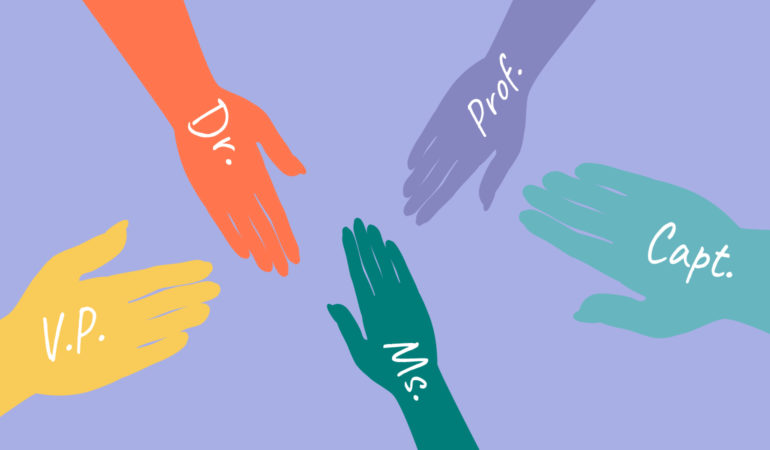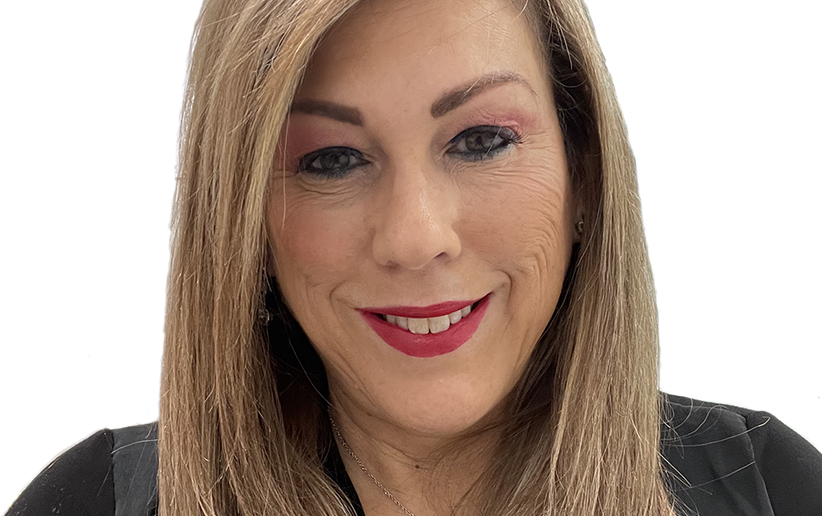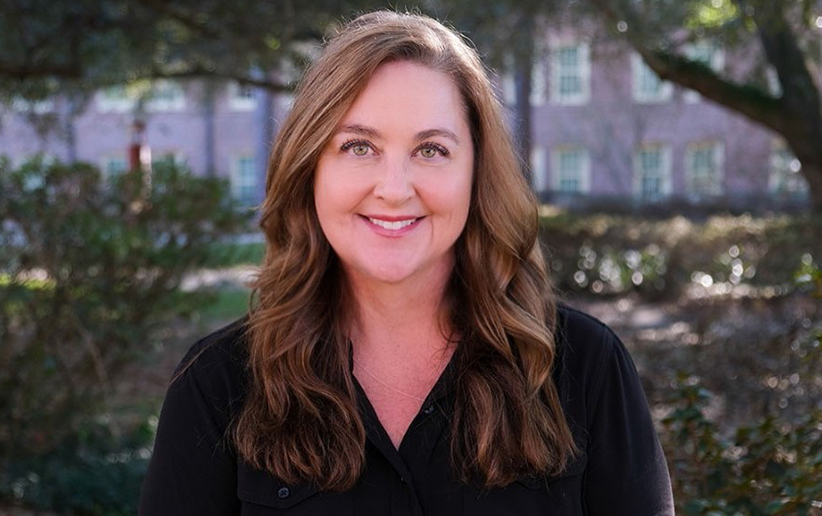One of the primary tools that we have in our clinical, supervisory, and educational relationships is our ability to share language and meaning with each other. The power of words is not a new idea. Indeed, in the field of psychotherapy it is as old as psychoanalytic thinking and systemic practice. We see it discussed by foundational postmodern thinkers and therapists like Goolishian and Anderson (1987) and DeShazer (1994). In discussing the power of words in practice, DeShazer (1994, p. 3) calls back to Freud’s (1915) idea that “words were originally magic and to this day, words have retained much of their ancient magical power….” Anderson (1997) even developed a whole therapy positionality around the power of words in practice—collaborative therapy. One of the foundational ideas of collaborative therapy is that knowledge is created as language evolves and thus the process of growth happens through dialogue. A second core idea of collaborative therapy is that multiple realities exist, which means there is no single way to see a situation, including the languaging of it. The power of words even extends to those that are often the smallest in nature like pronouns, prefixes, and titles, especially as these words are often used with great frequency and routinely carry significant weight, especially in modern times.
Parts of this content were presented at the American Association for Marriage and Family Therapy Queer and Trans Advocacy Network Second Virtual Conference in June of 2022.
The authors denote equal authorship.
In this piece, we focus our attention on some of the smallest of words that hold power – pronouns. This piece opens with a few of our stories around professional pronouns. We then move into a brief history of professional titles and prefixes followed by a current cultural outlook. We then close this piece with our field-based implications.
Stories about professional pronouns
For many BIPOC-identifying people (Black, Indigenous, People of Color), names are an essence of how we are shaped, and seen within our communities. From birth, our communities adorn us with nicknames, and pet names of endearment that, across time, help to shape our identity. Despite the time it takes for us to eventually be shaped into the might of our namesakes, the growth process is one that is usually collective (Cook et al., 2014). At different times and spaces throughout life, how people refer to us shapes how we begin to see, connect, and develop our own identity. This process in itself may be a challenging one for BIPOC-identifying people, as there are a myriad of narratives externally formed regarding who they are. The following is my (Dr. Maxine) experience with this process.
Dr. Maxine’s story
In my personal experience, my name has grown and shifted throughout time primarily based on my educational status and location. As an undergrad at a predominately white institution (PWI) in Maine, my name took on a solely abbreviated stature influenced by my peers. I believe this name brought comfort to those around me who identified me as other, and potentially wanted to be able to see me in a light more agreeable to their life experiences. Shortening my name was something that people did without asking. At this young age, I was not aware of how people’s claim to my name and title would shift how I saw myself developing through my career.
The absence of titles was something to get used to, but it did create an environment that felt more leveled for those aspiring to gain higher education.
As a masters level student training to be a therapist in New York City (NYC), my name became a full representation of how I saw myself growing as a provider. I had seen other professionals in my industry knowingly revered by others and shown the utmost respect by speaking a person’s full name, title, and their location of employment. With NYC being a very diverse place, this time period helped me to see that as you grow in notoriety, those around you are able to remember this most important piece of your identity, committing them to recollection, and offering respect. I soon learned that this was specifically something that took place by location. As I moved into a doctoral program that focused on social justice, and creating space for elevating minority voices, the viewpoints on names, titles, and pronouns were growing to include other considerations. Though this process was taking place in a New England-based PWI, there was an undeniable emphasis on creating equity by calling everyone by their preferred first name and dropping titles. The absence of titles was something to get used to, but it did create an environment that felt more leveled for those aspiring to gain higher education.
The most recent iteration of my name began to take shape in an academic medical setting, a location that puts high emphasis on title at every juncture. Completing an internship, and post doctoral fellowship in a PWI in the MidWest, was a vast change from anything I could have ever imagined for my career. Though my connection to the location forced me to think of myself as a high-level professional, internally, I did not feel comfortable sharing the formal title of those around me. Despite those around me having many more years of experience, a portion of me knows that my discomfort in sharing the title came from seeing so little representation of other doctors of color in the establishment. The walls of the institution, established in 1869, did not show the face of any Black physicians until 1957. The fact that doctors of color, particularly Black doctors, were a rare sight at this establishment, was something that was still not lost on staff or patients. Being in this location at the pivotal time of transitioning to being a doctor left me with much confusion for what this title should mean for me. It was at this time that I spoke with past mentors and colleagues about my transition to the title of doctor, and how I was struggling to find my meaning in it. In my final year of training, many staff and community members began to excitedly call me “Dr. Maxine.” A way to show their excitement for my accomplishment, while still holding onto the common familiarity of who I am. As I drew closer to the date of having my degree conferred, my thoughts moved to the collective shaping of what this achievement meant for me, but also for the larger community. This name and title meshed into one, immediately felt like the best fit. Changing my title to include my name and the insignia of my cumulative knowledge and years of hard work felt like the best way to respect myself, and all of those who have been with me across my journey. It allowed me to stay grounded and connected to who I have been my entire life, while also allowing me to respectfully acknowledge the importance placed on my level of education by those around me. It is important to respect the accomplishments that we have accessed as people of color. To deny ourselves the opportunity to fully claim what we have earned can be harmful to our sense of identity. It is important to find our own personal ways to embrace the titles we have strived so hard to achieve with a sense of peace and purpose in our process.
Dr. Markie’ story
In the fall semester of 2021, I (Dr. Markie) started my position as Teaching Faculty at Antioch University New England (AUNE) in the Department of Applied Psychology (AP) working with doctoral and masters students in the Couple and Family Therapy (CFT) program. I was and am very happy working with the faculty, staff, and students in the AUNE CFT program and a large reason for this is their intentional intersectional focus on social justice. For instance, just about all of the faculty, students, and staff share their pronouns upon meeting and set their video calls to have pronouns—it is very clear that the AP Department at AUNE is thoughtful and respectful of gender pronouns. The program houses a Gender Affirming Clinical Practice Certificate and weaves social justice principles and practices into every course—a clear indicator of their prioritizing queer intersectionalities in education and clinical practice.
About two and a half months into this position, a conversation emerged around professional pronouns during one of our CFT program meetings. The context was that I was one of the only faculty that used the professional title/pronoun of “Dr.” and the students were curious about this usage as the bulk of the faculty used primarily first names. During the meeting, the faculty shared that they intentionally used first names because they are aware and attentive to power dynamics between faculty and students and were using first names to level some of the hierarchical structural dynamics. They felt this was particularly important in the doctoral program, as these students are striving to be doctoral colleagues, and this is one way of integrating them into the field from day one. There was also acknowledgement that when this decision was made, all faculty in the CFT programs were white; the discussion was even more important now that the faculty are more racially and ethnically diverse. We understood that when professionals are referred to by surname, they garner more respect, are seen as more eminent, it is assumed that they have a higher status (Atir & Ferguson, 2018). For BIPOC persons who are often not treated consistent with their degree accomplishments, and report perceiving they are not included in decision making (Alsulami & Sherwood, 2020), a conversation around this topic was essential.
Indeed, faculty of color make up only 12.9% of full-time faculty, and although women make up 46.7% of full-time faculty overall, among tenure and tenure-track, the higher the rank, the lower the percentage with women and faculty of color.
I shared that I respected and understood this, and that there may be other frames that may be important to consider when considering the role of power in academia and professional title usages. I also noted that there are other ways to address the leveling of power differentials in academia that could be explored (e.g., writing and researching as equal authors, framing classroom content and grading as a co-construction, etc.). This led to a dialogue around use of “Dr.” as a title to acknowledge the advances that BIPOC persons, queer folx, and/or women have made in academia and how these titles and related voices are important to such groups as they have been and continue to be underrepresented in academia. Indeed, faculty of color make up only 12.9% of full-time faculty, and although women make up 46.7% of full-time faculty overall, among tenure and tenure-track, the higher the rank, the lower the percentage with women and faculty of color (National Center for Education Statistics, 2018). Thus, it felt important that our BIPOC faculty have a strong voice in determining how best to be addressed in an academic setting, as the title Dr. is perceived as the most powerful and competent form of address when compared to last name only or the gendered terms (e.g., Mr., Mrs., etc.; Ellis & Travis, 2007)—which we would not use at AUNE.
We also discussed how using such a title could be a form of role modeling for students who are historically underrepresented in academia. As one of the folx I admire in sexuality and medicine most, Dr. Jocelyn Elders (MD) so eloquently stated in her 2012 American Association for Marriage and Family Therapy (AAMFT) annual conference keynote address, “You can’t be what you can’t see,” and so the title can be a source of inspiration to graduate students, sending a clear message that they can become a doctor and be a person of minoritized backgrounds, identities, and/or experiences. In this vein, we discussed how it seems that when first names are used, the students (certainly not intentionally) will often default to calling women and other folx of minoritized backgrounds, identities, and/or experiences by their first name, while at the same time defaulting to the historical practice of calling men, particularly white, cisgender, heterosexual men, “Dr.” Indeed, when I brought up professional pronouns on Twitter, women faculty, queer faculty, and/or faculty of color noted, among other things, that the move from defaulting to “Dr.” to first name did not seem to happen until more non-white cisgender, heterosexual men started growing in numbers in academia and then there was a move to not use “Dr.” anymore. Here are some examples of the Tweets I received: “People became less respectful of titles and positions when women and minorities started entering them…That’s why I don’t let just anyone call [me] by my first name at work (Virgo, 2022)” and, “Calling me Ms. in a formal academic thing when you know I have a PhD is a microaggression (Williams, 2022).” Here is one more example from Twitter: “The more I have centered my queerness in my academic work, the more I have noticed my title being dropped (Peters, 2022).” Thus, it seemed to be the right time to talk of leveling patriarchy in academia when more women and BIPOC folx were entering the establishment—but not before then.

The discussion also focused on how defaulting to first names might present a difficult situation for transgender and/or genderqueer folx, who may change their first names or use one first name in one context and another in a different context. We also discussed how the use of last name may also present an issue for people’s relational orientation—as it may change upon marriage, singleness, partnerships, etc. For instance, my last name has changed multiple times based on my relational status and I do not need the academia community to be aware of these changes. So, I intentionally use “Dr. Markie,” my professional pronoun and my first name (which regardless of being androgynous reads to me and many others as an androgynous name so it is a good fit), even doing this occasionally I will have students who default to calling me “Mrs. Twist” or one of my former last names, which denotes a relational status and related orientation that does not fit me as a non-married, solo polyamorous person. Another reason I use Markie with Dr. in front of it, is to address power and personal context in academia—I want to be acknowledged and seen as a Dr., but I also do not want to be so formal or what feels more distant/impersonal from my students that I use my last name, so I use my first name. Recently, I have been considering the capitalization or not of the Dr. (dr.) and/or the Markie (markie) part of my professional identity as another way to denote importance or not of certain parts of my professional positionality and out of consideration for attending to power differentials.
From this discussion during our CFT program meeting, came the idea of researching and writing more in the area of professional pronouns, as none of us as faculty had really read much in this area and we were curious. So, we started doing some research in this area and found virtually nothing and we shared the conversation about professional titles with others—students and faculty alike—and those who were interested in continuing this conversation joined our professional pronouns team (Twist et al., 2022), specifically Dr. Maxine and Vanessa, and here we are writing this today. From the beginning of our working together as a team, we shifted the languaging from just that of professional title and professional prefix to also include professional pronoun. This shift is intentional—it is a feminist shift in intentionally recognizing the intertwinability of the personal and the professional (Blumer et al., 2010; Whipple, 1996).
Historical context around professional titles, prefixes, and pronouns
There are differences between pronouns, titles, and prefixes in English. A pronoun is a word that substitutes a person’s name when referring to them in the third person (e.g., they/him/her). A title is both a verb and a noun. As a verb, it is a given status (e.g., professor, surgeon general, doctor, captain) and called in place of the person’s name. As a noun, it is a way to address someone with great respect and significance, while in prefixed form (i.e., Dr., prof., V.P., Capt.) is a predetermined abbreviation used to address someone with politeness without writing the entire title.
Titles were initially meant to inform rank or position and are also called honorifics. Historically, someone using honorifics showed respect and esteem to the individual of high ranking, usually to clergy members throughout religious communities (i.e., priests, rabbis, sheiks) and people in royal societies (i.e., King, Queen, Chief). The Roman Catholic church began using the English word doctor in the 14th century (Online Etymology Dictionary, n.d.). The word originated from a Latin word, docēre, which meant to teach. During the renaissance era, throughout medieval and modern Europe, many teachings of the arts and sciences occurred. In 13th century Europe, the title was originally bestowed only upon theologians who were able to prove their aptitude as men versed in the Bible. It was not until the early 1700s that the term became more widely used, with universities in Europe awarding degrees denoting the title within the fields of medicine, law, and theology. For centuries, prestige was not found by those using the title of doctor, as European feudal systems elevated nobility as the most prestigious in their society from the Middle Ages. By the end of the movement, theologians, medical professionals, and academics were considered teachers of significant influence and accomplishment (Online Etymology Dictionary, n.d.). Presently, the title continues to acknowledge and identify those with significant impact and prestige.

Some medical doctors refer to themselves as Physicians (in place of the word doctor), which originates from the old middle English word physic, and the Latin word physica, which meant physical or study of natural sciences, and the Greek word, physikē, which meant the knowledge of nature (Online Etymology Dictionary, n.d.). Similarly, the old French word fisike meant “art of healing or a healing potion” and “faithful regimen.” For that reason, non-medical healers also adopted the Dr. term to highlight healing abilities among the sick as early as the 1300s because of their knowledge of change and natural processes. As a result, the current word physician—or doctor—has a historical element deriving from healing through natural treatment. Medical doctors were not required to have degrees until the late 1860s (David, 2020); presently, some United States of America (USA) state laws deem using the Dr. title (without legitimately holding a degree denoting that honorific) on marketing products like signs or business cards a misdemeanor. The individual using the term needs to have an earned medical degree from an accredited university. Despite the laws, the colloquial use of doctor most accurately identifies most professionals with doctorate degrees, including teachers in academia, administrators of medicine, and those with specialized, terminal knowledge in their respective areas (e.g., EdD, PharmD, JD, PsyD, DSW, Doc Sc, ThD, DBA), also known as professional doctorate degrees.
In summary, the prefix, pronoun, or title of the word “doctor” is not entirely incorrect when addressing holders of doctorate degrees. It is a pronoun to reference the honored individual in the third person, a title to illustrate their earned position or status in their respective field, and a prefix as a shortened way to use the respected title and pronoun if they so choose. Holders of doctorate degrees still carry an indirect element of healing and expectation to “create, apply and teach new knowledge” to rectify broken or missed processes in societal systems and governing bodies (e.g., education, law, medical, theology, business, social sciences, environmental sciences). Therefore, the objective of the degree reigns true to its historical roots, which is a fundamental reason to use the title, pronoun, or prefix with people who have acquired it.
Current context around professional pronouns
Most students in the USA learn to address our teachers formally. It is inappropriate to use the teacher’s first name or omit the prefixes: Mx., Ms., Mrs., or Mr. before their family name. The same etiquette applies to professional settings in and outside academia and using the “Dr.” title.
The doctor title is profound and almost always leads to the debate on who is deserving of the pronoun. USA pop culture tends to accept non-fictional characters with Dr. titles (i.e., Dr. Who, Dr. Strange, Dr. Honeydew, Dr. Teeth, Dr. Thor; BlueWingX, n.d) before openly acknowledging professionals with earned doctorate degrees. Many consider the person’s credentials, credibility, the field of study, and even gender. Due to the doctorate title presenting as an archetype, some doctoral-level professionals choose not to use the title to neutralize hierarchical systems and positions of power between them and their students or colleagues. Instead, they accept using their first name only with no prefix.
We see the doctor title used, received, and self-assigned in multiple ways. Non-doctorate degree holders use the title as stage names and social media usernames; honorary doctorate degrees from unaccredited online universities by providing donations and or completing nomination forms; and some institutions outside of the USA issue doctorate degrees by portfolio with no doctoral-level coursework or traditional dissertation research or capstone project requirement. For example, students complete a 12-month program that guides them with compiling previous work projects, developing a theory behind their efforts, presenting their portfolio, and obtaining their doctorate. Such programs are multi-disciplinary and accept students from diverse areas of work (i.e., music therapy, healthcare, engineering) into one cohort.
Such accreditation standards or philosophies may be more subjective to some people, influencing reactive views on who deserves the Dr. title. Society appears to tokenize and adore the Dr. title for those who untraditionally acquired their degrees (or may not have one at all); yet, society seems to present with skepticism or disregard towards degrees officially earned after years of study and professional scholarship. By observation, the common thread in all the methods of obtaining a doctorate (or honorary, fictional doctorates) and using the title is that people want recognition for their work and good deeds in their respective communities (Grace, 2021)—whether it is through hard labor, a unique school of thought (e.g., Universal Life Church Monastery, n.d.), academic credit—or building a community through a creative fictional character (Bevelle, 2022). Willfully, history has predetermined how to obtain an official doctorate, as seen in mainstream academia; using the Dr. title outside of such close-knit communities could be misleading to outsiders from a sociocultural perspective.
Implications for the field
Our first and foremost implication is to consider the need to attend to professional pronouns from a positionality that is systemic in nature. This means allowing for homeostatic shifts to take place in all contexts of our educational and professional engagements. Maintaining a mindset that creates space for these periodic shifts will better prepare us to be open to our developing identities, and the growing identities of other professionals. Embracing respect and curiosity for this systemic process will accommodate us as we usher in the future of colloquial pronouns.
Second, instead of assuming one’s professional titles, prefixes, and pronouns, discuss them with students, supervisees, supervisors, colleagues, etc. Ultimately, this would be an apt conversation to have early on in someone’s introduction to our field, so that there is a culture of openness around this intersection of professional and personal identities. It is also a conversation that ultimately would be had as initiated by the person and people who hold the most power—the faculty, professors, teachers—as a way of sharing power with students while modeling power sharing (Blumer et al., 2010; Prouty & Twist, 2015; Twist & Murphy, 2017). In this discussion, it is encouraged to include an overview of the history of professional titles in general, as well as the historical feminist-informed positionality around the conscientious choice to not use professional titles in academia, reportedly as a means of trying to level power differentials between students and faculty. We also suggest discussing that, anecdotally, it would seem that the choice to try to level the hierarchy in academia through intentionally not using professional titles of faculty correlates with increases in women, BIPOC, and queer faculty Drs. entering and growing in numbers in academia. Thus, although the reasoning behind curtailing the use of professional titles in academia was feminist-informed and seemingly well-intentioned at its core, from more of a fourth-wave-feminist-informed lens with considerations of intersectional (Crenshaw, 1989) positionalities applied to the question of the use of “Dr.” in academic settings considering who are emerging as the Drs. and faculty in academic institutional settings, it may be helping to level the hierarchy between professors and students, but it is also having the effect that often male Drs., particularly white male Drs., in academic contexts still are called “Dr.,” while women, BIPOC, and queer professionals are not. This reads as disproportionality disempowering for folx who are not white men Drs. in academia, as they tend to be the Drs. whose titles are stripped, while the people who had traditionally and still do wield the most power in academia (white men) have given up nothing and shared no real power, they have instead, maintained power as they often preach not using the title of “Dr.,” but the use (or not) of this title affects them the least in real time in practice.
Thus, if we are to be more inclusive of people’s professional, gender, and relational positionalities, a third implication is to begin our academic conversations with sharing our pronouns that are gender, professional, and relationally inclusive.
In many ways, a conversation around professional pronouns resonates with the larger conversation around queerness. One such intersection to consider is that we are in a time in academia and clinical practice where folx are starting conversations with gender pronouns (Blumer et al., 2013; Iantaffi & Twist, 2017). We could do the same with professional pronouns. There is an exigency to not only do this because of the need to acknowledge professional positionality, particularly for women and BIPOC folx, but also because of the assumptions around pronouns people make when we do not do this. For instance, students, faculty, and others will often assume a woman-appearing faculty/clinician is a Ms. or a Mrs. This implies beliefs around gender (being a woman) as well as relational orientation (married or single). It leaves little room for other pronouns like Mx. or Mu, for example, for people who may be genderqueer or non-binary. Thus, if we are to be more inclusive of people’s professional, gender, and relational positionalities, a third implication is to begin our academic conversations with sharing our pronouns that are gender, professional, and relationally inclusive. If, in this process, someone does not share their professional pronouns, then ask them what they are. It is better to ask than to not ask and professionally mispronoun people. In addition, much like it is important to check in with folx on their gender pronouns from time-to-time, as for some they may shift and/or for others certain gender pronouns may only be used in certain contexts rather than across all contexts (Blumer et al., 2013), we suggest checking in on professional pronouns from time-to-time, as well. A discussion around what the professional identifier means to the people using them is relatedly suggested. For instance, my professional so-called title—philosophical doctorate—is more than a mere title to me (MLCT). To me, being a “Dr.” is a large part of my identity. Thus, to me, it is a pronoun.
It is essential for all to recognize that as the world continues to change, allowing additional room for the voices of those once overlooked or unacknowledged to be seen and heard is not only important, but also a necessity. Therefore, acknowledgement and respect of everyone’s professional pronouns must be given. Thus, our fourth implication is that we need to normalize and propagate this process by making room at all stages of development and training for people to respectfully reflect on their identity—all parts of one’s identity. This promotion of and ongoing attention to self-identification can be a way of immersing our students in systemic thinking throughout their training.
This article is offered free by AAMFT. If you are interested in accessing members-only content, join today!

Vanessa Perocier (she/her) is a doctoral candidate at Antioch University New England in New Hampshire and LMFT (California) studying couple and family psychotherapy. After eight years of clinical experience in marriage and family therapy, she loves working with underserved families coping with severe mental illness and helping them create healthier futures.

Maxine Notice (Dr. Maxine) (she/her) is Core Faculty in the Online Marriage and Family Therapy Program at Abilene Christian University-Dallas and Adjunct Faculty in Applied Psychology Department at Antioch University New England. Dr. Maxine is an LMFT, LMHC, NCC, an AAMFT Professional Member holding the Clinical Fellow and Approved Supervisor designations, and alumni of the Minority Fellowship Program (MFP).

Lucille (Dr. Lucy) H. Byno (she/her) is Associate Professor and Department Chair in the Applied Psychology Department at Antioch University New England. Dr. Lucy is an LMFT (Florida), AAMFT Professional Member holding the Clinical Fellow and Approved Supervisor designations, and CFLE. She has a small systemic therapy private practice where all are welcomed.

Markie L. C. Twist (Dr. Markie) (she/they) was born and raised in Houston, Alaska. Dr. Markie serves as Teaching Faculty at Antioch University New England working with doctoral and masters level couple and family therapy students in the Applied Psychology Program. Dr. Markie is also an LMFT and LMHC, as well as an AAMFT Professional Member holding the Clinical Fellow and Approved Supervisor designations, and certified sexuality educator and supervisor through the AASECT. Dr. Markie serves as the the Editor-in-Chief of Sexual and Relationship Therapy: International Perspectives on Theory, Research and Practice. To learn more about Dr. Twist visit: drmarkie.com.
Alsulami, S.A., & Sherwood, G. (2020). The experience of culturally diverse faculty in academic environments: A multi-country scoping review. Nurse Education in Practice, 44, 1-10. doi:10.1016/j.nepr.2020.102777.
Anderson, H. (1997). Conversation, language, and possibilities: A postmodern approach to therapy. Basic Books.
Atir, S., & Ferguson, M.J. (2018). How gender determines that way we speak about professionals. Proceedings of the National Academy of Sciences or the United States of America, 115(28), 7278-7283. doi:10.1073/pnas.1805284115.
Bevelle, E. Reverend Dr. E. (2022). Home [Facebook page]. Retrieved April, 12, 2022, from https://www.facebook.com/people/Reverend-Dr-E/100044427789724/
BlueWingX. (n.d.). Pop culture doctor stats. Retrieved from Sporcle on March 30, 2022 https://www.sporcle.com/games/g/popdocs/results
Blumer, M. L. C., Ansara, Y. G., & Watson, C. M. (2013). Cisgenderism in family therapy: How everyday clinical practices can delegitimize people’s gender self-designations. Journal of Family Psychotherapy, 24(4), 267–285. https://psycnet.apa.org/record/2013-45132-002.
Blumer, M. L. C., Green, M. S., Compton, D., & Barrera, A. M. (2010). Reflections on becoming feminist therapists: Honoring our feminist mentors. Journal of Feminist Family Therapy: An International Forum, 22(1), 57–87. doi:10.1080/08952831003652319
Cook, L. D., Logan, T. D., & Parman, J. M. (2014). Distinctively black names in the American past. Explorations in Economic History, 53, 64–82. doi:10.1016/j.eeh.2014.03.001
Crenshaw, K. (1989). Demarginalizing the intersection of race and sex: A Black feminist critique of antidiscrimination doctrine, Feminist theory and antiracist politics. University of Chicago Legal Forum, 1(8), 139-167. http://chicagounbound.uchicago.edu/uclf/vol1989/iss1/8
David, E. (2020, December 22). When did physicians start to be called doctors? Retrieved April 12, 2022 from https://www.grunge.com/300274/when-did-physicians-start-to-be-called-doctors/
De Shazer, S. (1994). Words were originally magic. Norton. Ellis, V.S., & Travis, J.E. (2007). Professional titles in higher education: Do they matter to students? College Student Journal, 41(4), 1168-1182. https://eric.ed.gov/?id=EJ816844
Freud, S. (1915-17). The complete introductory lectures on psychoanalysis. In J. Strachey (Ed.), The standard edition of the complete psychological works of Sigmund Freud. (Vol. 15 & 16). Norton.
Goolishian, H. A., & Anderson, H. (1987). Language systems and therapy: An evolving Idea. Psychotherapy: Theory, Research, Practice, Training, 24(3S), 529–538. doi:10.1037/h0085750
Grace, I. (2021, October 5). 21+ Honorary doctorate degrees online for anyone 2022. World Study Portal. https://worldstudyportal.com/honorary-doctorate-degrees/.
Iantaffi, A., & Twist, M. L. C. (2017). Gender identity. American Association for Marriage and Family Therapy Therapy Topics. http://www.aamft.org/imis15/AAMFT/Content/Consumer_Updates/Gender_Identity.aspx
Peters, B. @queersurgeon. (2022). Tweets [Twitter profile]. Retrieved August 20, 2022, from https://twitter.com/queersurgeon
Prouty, A., & Twist, M. L. C. (2015). Training feminist family therapists. In K. Jordan (Ed.). Couple, marriage, and family therapy supervision (pp. 345-368). Springer Publishing Company.
National Center for Education Statistics. (2018). Integrated Postsecondary Education Data System. National Center for Education Statistics.
Online Etymology Dictionary. (n.d.). https://www.etymonline.com/word/physic
Twist, M. L. C.=Byno, L. H.=Perocier, V. = Notice, N. (2022, June). What’s in a name? Revisiting the power of words in practice [panel]. American Association for Marriage and Family Therapy Queer and Trans Advocacy Network Second Virtual Conference, Alexandria, VA, USA.
Twist, M. L. C., & Murphy, M. J. (2017). Power in family systems theory. In J. Lebow, A. Cambers, & D. Breunlin (Eds.). Encyclopedia of couple and family therapy. Springer Publishing Company.
Universal Life Church Monastery. (n.d.). https://www.themonastery.org/catalog/honorary-divinity-degree
Virgo. (2022). @DrVirgo1981. (2022). Tweets [Twitter profile]. Retrieved August 22, 2022, from https://twitter.com/DrVirgo1981
Whipple, V. 1996. Developing an identity as a feminist family therapist: Implications for training. Journal of Marital and Family Therapy, 22: 381–396. doi:10.1111/j.1752-0606.1996.tb00212.x
Williams, B.M. @DrBritWilliams. (2022). Tweets [Twitter profile]. Retrieved August 23, 2022, from https://twitter.com/DrBritWilliams
Other articles
Beginning Anew in 2023
I am filled with gratitude as I welcome 2023 as the new, incoming President of AAMFT: we have a new, incoming CEO, Christine Michaels; a new group of Board members; some ongoing challenges which we are newly poised to tackle, and opportunities that await us as we are in as strong a fiscal and strategic position than we’ve ever been.
Silvia Kaminsky, MSEd
AAMFT Welcomes Lenore M. McWey, PhD, LMFT, as New JMFT Editor-Elect
AAMFT is very pleased to announce that Lenore, M. McWey, PhD, LMFT, has been selected as editor-elect of Journal of Marital and Family Therapy. Dr. McWey will officially take over duties of the Journal in January 2024.
Part 2: Marriage and Family Therapist Workforce Study 2022
In the first half of 2022, AAMFT conducted an industry workforce study to examine the shifts related to COVID-19, their short- and longer-term impacts, and what challenges and opportunities are facing the field.




